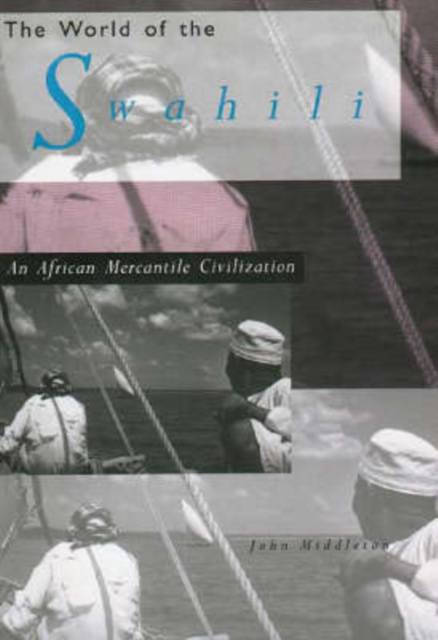
- Afhalen na 1 uur in een winkel met voorraad
- Gratis thuislevering in België vanaf € 30
- Ruim aanbod met 7 miljoen producten
- Afhalen na 1 uur in een winkel met voorraad
- Gratis thuislevering in België vanaf € 30
- Ruim aanbod met 7 miljoen producten
Zoeken
€ 61,45
+ 122 punten
Omschrijving
The Swahili of East Africa have a long and distinctive history as a literate, Muslim, urban, and mercantile society. In this book a leading Africanist presents the first full-length anthropological account of the Swahili and offers an original analysis of their little-understood and unusual culture. Swahili towns, some urban with elegant stone buildings and others more rural with palm-leaf-matting houses, are spread along the thousand-mile East African coast. Because each local community is culturally different from its neighbors, previous historians and anthropologists have viewed the Swahili as a series of isolated and 'detribalized' groups. John Middleton argues, on the contrary, that beneath the cultural variation is a single structure, that of a well-defined and complex trading society that has shown little change through the ages. Drawing on his own field research and on earlier writings on the Swahili, Middleton describes this centuries-old mercantile culture--its local and descent groupings, marriage patterns, religion, and values. He traces the history of their colonized past as subjects to Arabs, Portuguese, British, and others and shows that, although their economic and political role has continually been a subordinate one, their sense of their unique identity enables them to persist as an ongoing civilization.
Specificaties
Betrokkenen
- Auteur(s):
- Uitgeverij:
Inhoud
- Aantal bladzijden:
- 266
- Taal:
- Engels
Eigenschappen
- Productcode (EAN):
- 9780300060805
- Verschijningsdatum:
- 10/09/1994
- Uitvoering:
- Paperback
- Formaat:
- Trade paperback (VS)
- Afmetingen:
- 153 mm x 233 mm
- Gewicht:
- 426 g

Alleen bij Standaard Boekhandel
+ 122 punten op je klantenkaart van Standaard Boekhandel
Beoordelingen
We publiceren alleen reviews die voldoen aan de voorwaarden voor reviews. Bekijk onze voorwaarden voor reviews.











